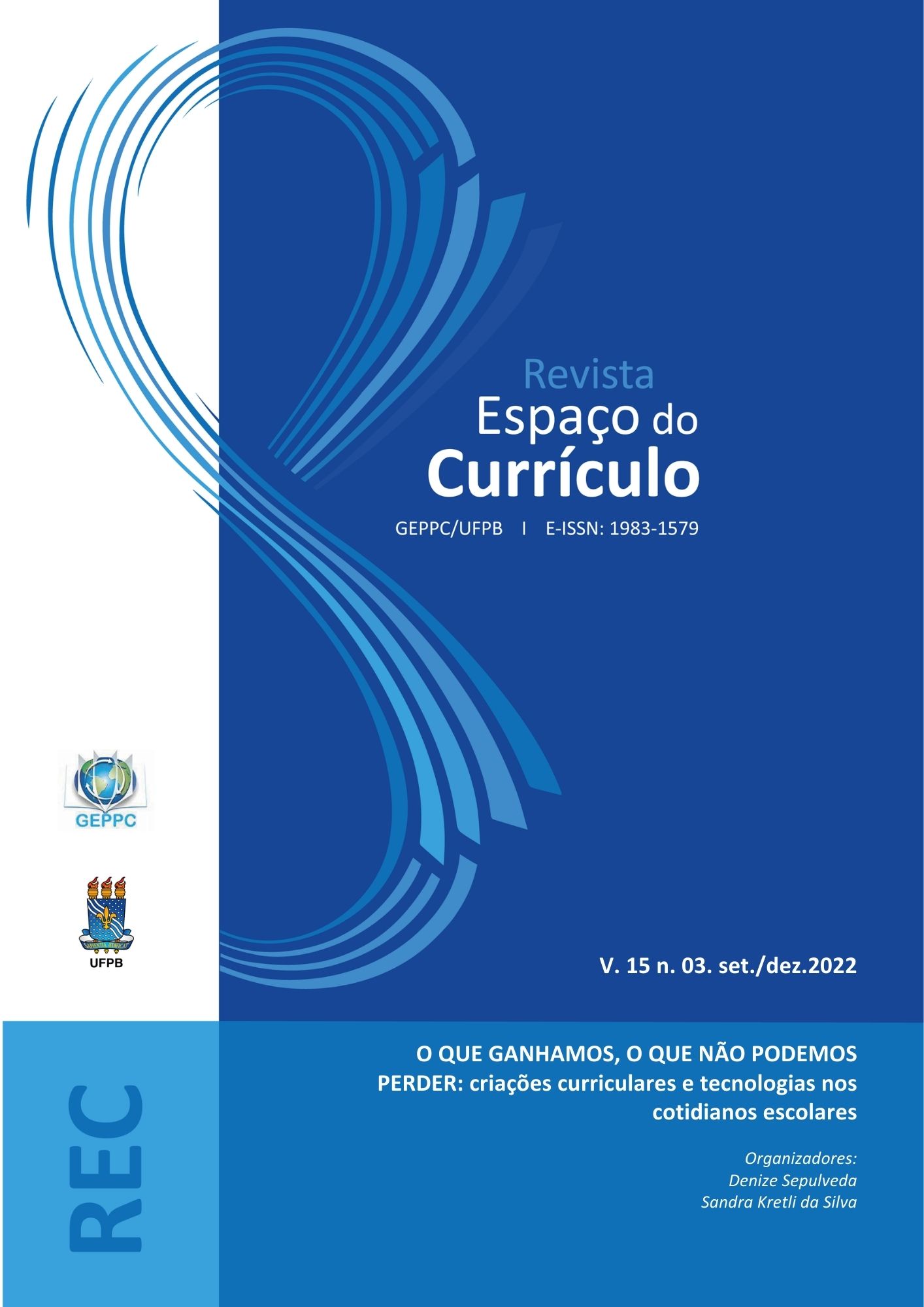The ORGANIC CHEMISTRY IN THE CHEMISTRY TEXTBOOK
between the stability of curricular approaches and the change in tradition
DOI:
https://doi.org/10.15687/rec.v15i3.61575Keywords:
Textbook, Curriculum, Chemistry, Curriculum Approaches, Organic ChemistryAbstract
The formation of chemistry teachers seeks in their ways resources for a good teaching practice. Among the many didactic resources, the textbook is an important instrument in teacher education, since it is a curricular reference. When talking about the textbook, it is important to analyze its trajectory, so that we can understand how the curriculum contents of chemistry and their contexts of application are related. Analyzing the path taken by the organization of textbooks is essential to observe what is the basis that was structured for our books today. Thus, having a background on curriculum and how it relates to chemistry textbooks, focusing on the relationships established between the chemical knowledge taught in the chemistry school subject in the third year of high school. To analyze chemistry textbooks, selected by the 2018 National High School Textbook Program, for the third year of high school, seeking to delimit the curricular approaches of organic chemistry treated. This theme is relevant to the education of future teachers, as well as to the continuing education of teachers, who seek to identify the curricular approaches of organic chemistry present in high school chemistry textbooks.
Downloads
Metrics
References
BARREIRO, E. J. Sobre a Química dos remédios, dos fármacos e dos medicamentos. Cadernos Temáticos de Química Nova na Escola, v. 3, p. 4-9, 2001.
BATISTA, A.; FARIA, F. L.; BRONDANI, P. B. A Química do Petróleo: a utilização de vídeos para o ensino de Química no Nível Médio. Química Nova na Escola, v. 43, p. 237-245, ago. 2020.
BRASIL. Ministério da Educação. Secretaria de Educação Básica, Fundo Nacional do Desenvolvimento da Educação. Guia de livros didáticos: PNLD 2018– Química. Brasília: MEC/SEB, 2017.
ECHEVERRIA, A.; MELLO, I. C.; GAUCHE, R. O Programa Nacional do Livro Didático no Contexto da Educação Brasileira. In: ROSA, M. I. P.; ROSSI, A. Vitorino. (Org.). Educação Química no Brasil: memórias, políticas e tendências. Campinas, SP: Editora Átomo, 2012. p. 63-83.
FIALHO, N. N. A prática docente do professor de Química. In: ROSENAU, L. dos S.; FIALHO, Neusa Nogueira. Didática e avaliação da aprendizagem em química. Curitiba: Ibpex, 2008. p. 21-50
GOODSON, I. F. Currículo: teoria e história. 14. ed. Petrópolis, RJ: Vozes, 2013.
GOMES, M. M.; SELLES, S. E.; LOPES, A. C. Currículo de Ciências: estabilidade e mudança em livros didáticos. Educação e Pesquisa, São Paulo, v. 39, n. 2, p. 477-492, jun. 2013.
MORTIMER, E. F.; WILDSON, L. P. S. Políticas e práticas de livros didáticos de Química: o processo de constituição da inovação X redundância nos livros didáticos de Química de 1883 a 1987. In: ROSA, M. I. P.; ROSSI, A. V. (Org.). Educação Química no Brasil: memórias, políticas e tendências. Campinas, SP: Editora Átomo, 2012. p. 85-103.
PAZINATO, M. S.; BRAIBANTE, H. T. S.; BRAIBANTE, M. E. F.; TREVISAN, M. C.; SILVA, G. S. Uma abordagem diferenciada para o ensino de funções orgânicas através da temática medicamentos. Química Nova na Escola, v. 34, n. 1, p. 21-25, 2012.
SACRISTÁN, J. G. O currículo: uma reflexão sobre a prática. 3. ed. Porto Alegre: Artmed, 2000, p. 13- 87.
SANTA MARIA, L. C.; AMORIM, M. C. V.; AGUIAR, M. R. M. P.; SANTOS, Z. A. M.; CASTRO, P. S. C.B. G.; BALTHAZAR, R. G. Petróleo: um tema para o ensino de Química. Química Nova na Escola, v. 15, p. 19-23, mai. 2002.
SECRETARIA DE ESTADO DA EDUCAÇÃO. Química / vários autores. Curitiba: SEED-PR, 2. ed., 2006, p. 248. Disponível em: http://www.educadores.diaadia.pr.gov.br/arquivos/File/livro_didatico/quimica.pdf. Acesso em: 15 de nov. de 2019.
SILVA, F. A.; ALVES, J. Q.; ANDRADE, J. J. O livro didático como documento histórico para análise do currículo de Química e Ciências. Revista Triângulo, Uberaba, v. 12, n. 1, p. 43-67, abr. 2019.
SOUSA, R. S.; GALIAZZI, M. C. A tradição de linguagem em Gadamer e o professor de Química como tradutor-intérprete. ACTIO, Curitiba, v. 3, n. 1, p. 268-285, jan./abr. 2018. Disponível em: https://periodicos.utfpr.edu.br/actio/article/view/7431/4969. Acesso em: 15 de nov. de 2019.
Downloads
Published
How to Cite
Issue
Section
License
Copyright (c) 2022 Curriculum Space Journal

This work is licensed under a Creative Commons Attribution 4.0 International License.
By submitting an article to Curriculum Space Journal (CSJ) and having it approved, the authors agree to assign, without remuneration, the following rights to Curriculum Space Journal: first publication rights and permission for CSJ to redistribute this article. article and its metadata to the indexing and reference services that its editors deem appropriate.
















